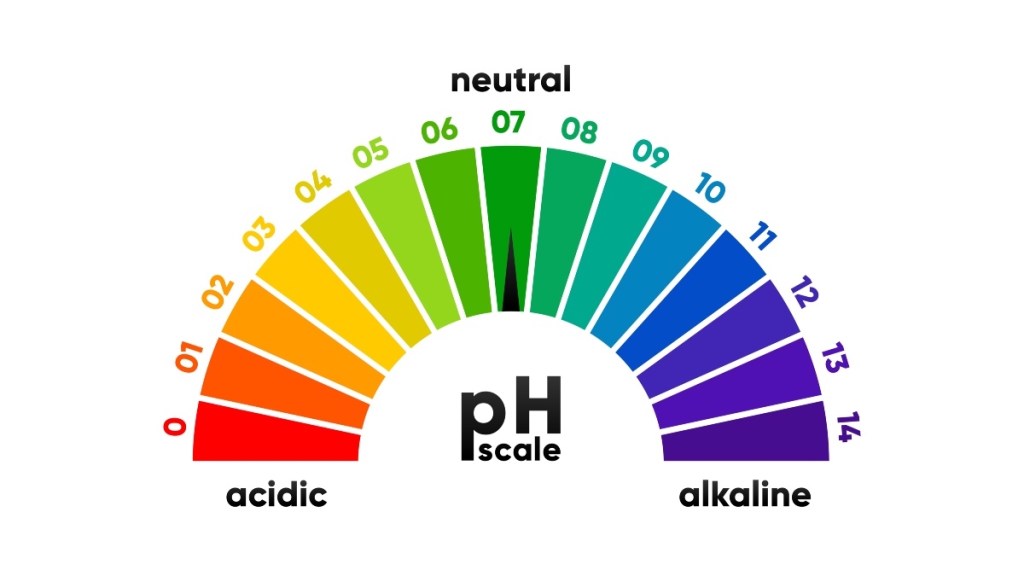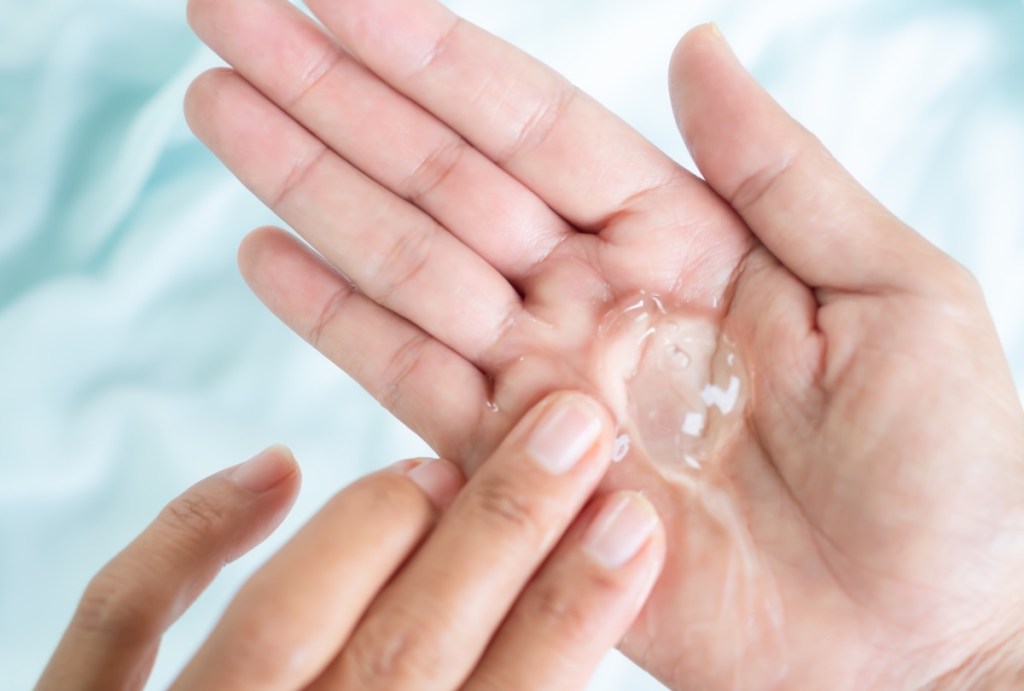Balancing Your Vaginal pH Can Put an End to Odors, Itching and Discharge, Say MDs
Doctors reveal what disrupts your vaginal pH — and the easy fixes that bring it back into balance

Let’s be honest — vaginal pH isn’t something most women think about until it goes awry. When that happens, symptoms like intense itching, a smelly discharge and even painful sex are front and center. Here, doctors explain what can disrupt your pH, plus share how to balance vaginal pH naturally. The best part: Once you adopt these easy habits, you’ll never have to worry about smell, discomfort or discharge again!
What is vaginal pH?
To understand more about vaginal pH and why it’s important, we need to revisit seventh-grade science class. The term pH, which stands for “potential of hydrogen,” measures the concentration of hydrogen ions in any substance. The more hydrogen ions, the more acidic the pH, which is measured on a scale of 0 to 14. A pH of 7 is considered neutral (think water). Numbers less than 7 become more and more acidic the closer they get to 0. Anything above 7 is classified as alkaline, getting more and more alkaline until it reaches 14.

Every system and organ in the body has an optimal pH. And that includes the vagina, explains Kyle Graham, MD, a board-certified ob/gyn with Pediatrix Medical Group in San Jose, California. A normal vaginal pH is acidic, generally falling between 3.5 to 4.5. At this level, the healthy vaginal bacteria that ward off infections and keep everything humming are able to grow and thrive, he says.
Alyssa Dweck, MD, author of The Complete A to Z for Your V, agrees. “The vagina’s very specific pH is a natural mechanism to help prevent infection and maintain a healthy vagina free of discharge, itching, odor, pain and the like.” That’s because a healthy pH safeguards against the conditions that bring on these symptoms, like yeast infections, bacterial vaginosis and even trichomoniasis, an infection caused by a parasite that’s sexually transmitted. (Click through to find out what to do if your yeast infection won’t go away and for our best bacterial vaginosis home remedies.)
How to balance your vaginal pH naturally
“Typically, vaginal pH is self-regulatory,” says Dr. Graham. “However, there are certain things that can throw off or destabilize the pH.” Simply pinpointing those common culprits — and adopting the easy pH-balancing fixes — ensures bothersome symptoms will be a thing of the past.
Vaginal pH disruptor: sexual intercourse
Sex can change vaginal pH because semen is alkaline — often between 7 and 8 on the pH scale — compared to the vagina’s acidic environment, says Lauren Streicher, MD, clinical professor of obstetrics and gynecology at Northwestern University’s Feinberg School of Medicine. This is why some women notice a funky odor after intimacy. “It’s not because he has smelly sperm,” she explains. “It’s because the pH in the vagina was elevated and it allowed the bad bacteria to move in.”
How to balance vaginal pH naturally after sex: Dr. Streicher suggests using RepHresh Odor Eliminating Vaginal Gel (Buy from Amazon, $15.63) after sex. She says it can “buffer” vaginal pH and allow the vagina to be repopulated with good bacteria.
Condoms are another way to protect vaginal pH during sex, says Dr. Graham, adding that the vagina is able to “tolerate” a certain amount of semen exposure without disruption to its pH. “Each woman is different,” he says. “Some may be able to tolerate sex daily or every other day and not develop any irritating vaginal symptoms. Others may be able to tolerate sex weekly or monthly. I’ve even had patients where every time they have sex with their partner, they experience unbalanced pH and thus, irritating symptoms.” The key is figuring out what works best for you and maintaining good perineal hygiene (which includes always wiping front to back and washing with warm water and patting dry if needed).
Vaginal pH disruptor: menopause
In order for the vagina to maintain healthy levels of Lactobacillus, the ‘good’ bacteria that helps the organ maintain its acidic pH, estrogen is needed, says Dr. Graham. That means the drop in estrogen that occurs during menopause makes the vagina less acidic, raising the risk of infection and those uncomfortable symptoms that come with it.
How to balance vaginal pH naturally during menopause: Dr. Streicher advises her menopausal patients to try Replens Vaginal Moisturizer (Buy from Amazon, $12.98). “It works to normalize vaginal pH and also restores moisture to the area,” she says. Another option: Phytoestrogens. These compounds found in foods such as flaxseeds, edamame, tofu and dried fruits, mimic estrogen in the body. One study in the journal Post Reproductive Health found that phytoestrogens improved vaginal pH in peri- and post-menopausal women.
Tip: If natural remedies aren’t providing the relief you need, Dr. Graham advises talking to your doctor about a prescription vaginal estrogen cream. “It can help to maintain a healthy pH by replacing the estrogen the vagina lacks after menopause,” he explains. “And since treatment is localized, it avoids the systemic side effects as well.”
Vaginal pH disruptor: douching and feminine products
While it’s true the vagina is self-cleaning, you definitely don’t get that feeling when perusing the feminine hygiene aisle in your drugstore or supermarket. From wipes and cleansers to douches, most hygiene products not only are not necessary, but the ingredients (including fragrances and other chemicals) can actually disrupt vaginal health, cautions Dr. Streicher.
Although the Office of Women’s Health in the U.S. Department of Health and Human Services says one in five American women douche (where a water-based liquid is sprayed through a tube upwards into the vagina) to feel fresh and clean after sex or their period, doing so can alter the vagina’s pH. This can allow for growth of harmful bacteria, says Dr. Dweck.
“There’s absolutely no medical reason to douche,” says Dr. Streicher. “In fact, it’s harmful.” How? It increases the risk of infection, inflammation, and even pelvic inflammatory disease. It can also make the vagina more vulnerable to very serious health issues like gonorrhea or chlamydia. What’s more, external vulvar products such as washes have no benefits and can be very irritating to the sensitive tissue, Dr. Streicher says. Even certain lubricants and vaginal moisturizers can trigger harmful pH changes.
How to balance vaginal pH naturally: Be picky about what you use. “It’s very important to look at the ingredients when purchasing feminine hygiene products,” says Dr. Graham. Chemicals and fragrance can also disrupt pH and irritate sensitive vulvar skin, so steer clear of products that contain them. Also, any product that is water-based has the potential to trigger a pH imbalance, Dr. Graham asserts. That’s why he generally advises lubricants made with silicone, which doesn’t impact pH. One to try: Pink Silicone Lubricant (Buy from Walmart, $9.95).

Vaginal pH disruptor: menstruation
Like semen, blood has a higher pH of 7.4 that can raise the pH of the vagina. “The mixing of an acidic and alkaline pH can neutralize the area,” explains Dr. Graham. “Since the vagina is healthier at a lower pH, this may cause an imbalance during your period.”
How to balance vaginal pH naturally during menstruation: “The healthiest thing to do is to frequently change your tampon or pad,” he suggests. “This will limit the exposure of blood to the vaginal environment.” Also smart: RepHresh Odor Eliminating Vaginal Gel (as mentioned above) can help restore the acidic pH balance that can be lost during your period, says Dr. Streicher.
More ways to balance your vaginal pH naturally
“Everything from what we eat to what we wear can have an impact on our vaginal health and pH, so it’s important to keep lifestyle habits in mind when trying to achieve optimal wellness,” says Dr. Dweck.
1. Opt for cotton underwear
“Consider a cotton panty crotch, which is breathable,” Dr. Dweck suggests. Clothing that’s too tight and made with non-breathable fabrics can trap heat and moisture in the vaginal area, which can promote infection, she adds.

2. Use fragrance-free detergent
In addition to avoiding fragrance in soaps and body washes, Dr. Dweck also suggests adopting the same strategy when buying laundry detergents and fabric softeners — especially if you’re sensitive. Organic and fragrance-free menstrual products can also be helpful for anyone who is super sensitive.
3. Eat probiotic-rich foods
“Both sugar and alcohol can influence the vaginal flora, so minimize them, especially if you’re prone to yeast infections,” Dr. Dweck suggests. She also suggests eating foods with live cultures that contain the probiotic Lactobacillus, which is key to vaginal health. That includes foods such as yogurt, sauerkraut, kefir (a fermented milk drink), and kimchi (fermented veggies). (Click through to learn how to make your own probiotic-rich yogurt at home.)
Also smart: Dr. Dweck suggests considering a daily probiotic that focuses on women’s vaginal or urinary health. One to try: HUM Nutrition Private Party Probiotic for Vaginal Health (Buy from Amazon, $26).

4. Consider suppositories
Lastly, Dr. Dweck suggests considering boric acid suppositories as a maintenance strategy to maintain an acidic vagina. Simply insert one suppository into the vagina once weekly before bed. One to try: pH-D Feminine Health Boric Acid Vaginal Suppositories (Buy from Amazon, $9.84).
For more ways to outsmart vaginal health bothers:
A Gynecologist Reveals How To Spot a Vaginal Boil — And What To Do If You Find One
Your Vagina *Does* Get Smaller After Menopause + Lubricants Women 50+ Should Never Use
Ob/Gyns on How to Tell If That Lump Is a Vaginal Skin Tag Or Something More Serious
This content is not a substitute for professional medical advice or diagnosis. Always consult your physician before pursuing any treatment plan.

















